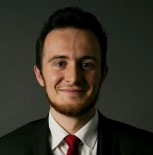B.Sc. Philipp Rößner

- Telefon
- +49 89 289-53716
- Raum
- 293
- philipp.roessner@tum.de
- Links
-
Visitenkarte in TUMonline
- Arbeitsgruppen
- Präzisionsmessungen bei extremen Bedingungen
Fachschaftsvertretung - Funktionen
- Studierender in Präzisionsmessungen bei extremen Bedingungen
- Mitglied der Fachschaftsvertretung
Lehrveranstaltungen und Termine
| Titel und Modulzuordnung | |||
|---|---|---|---|
| Art | SWS | Dozent(en) | Termine |
|
Studentische Vollversammlungen - Physik eLearning-Kurs Diese Lehrveranstaltung ist keinem Modul zugeordnet. |
|||
| VO | 0.1 | Wunderl, P. | |